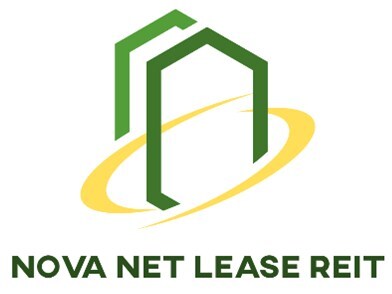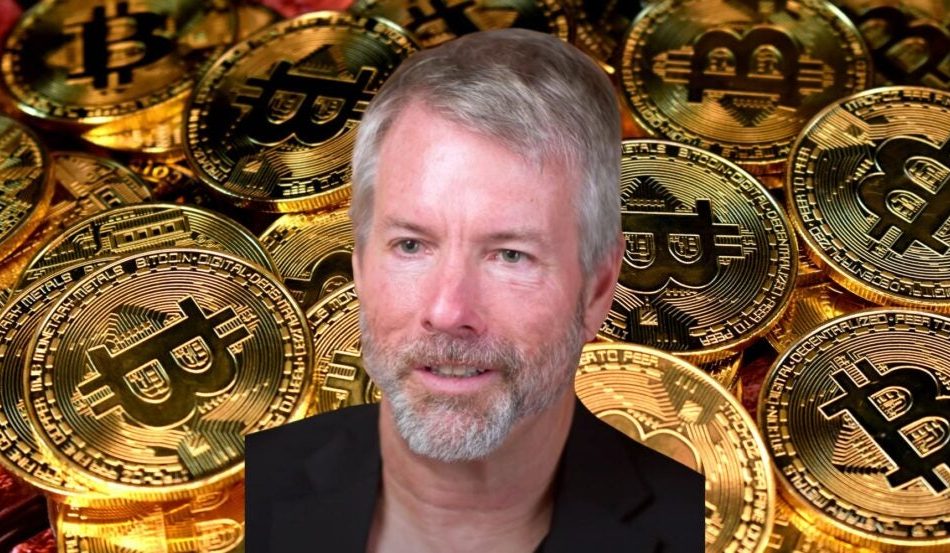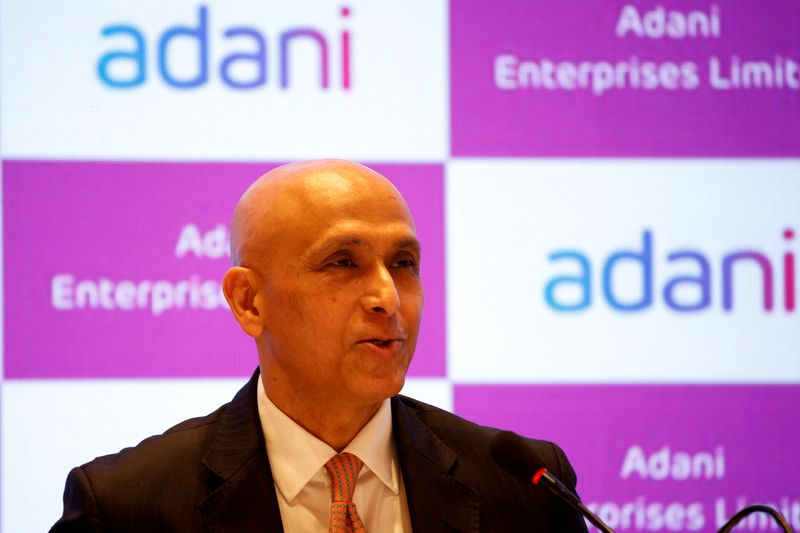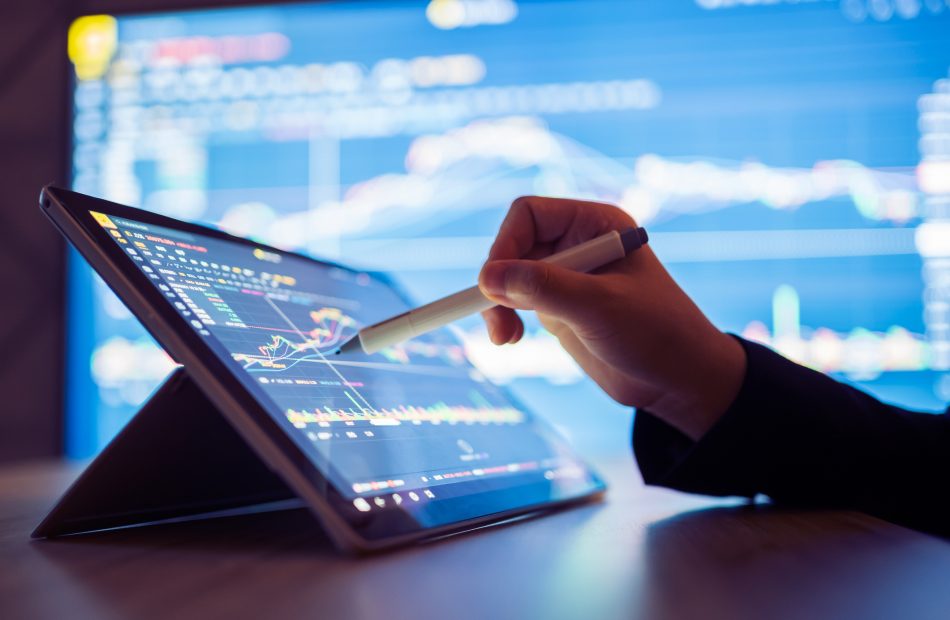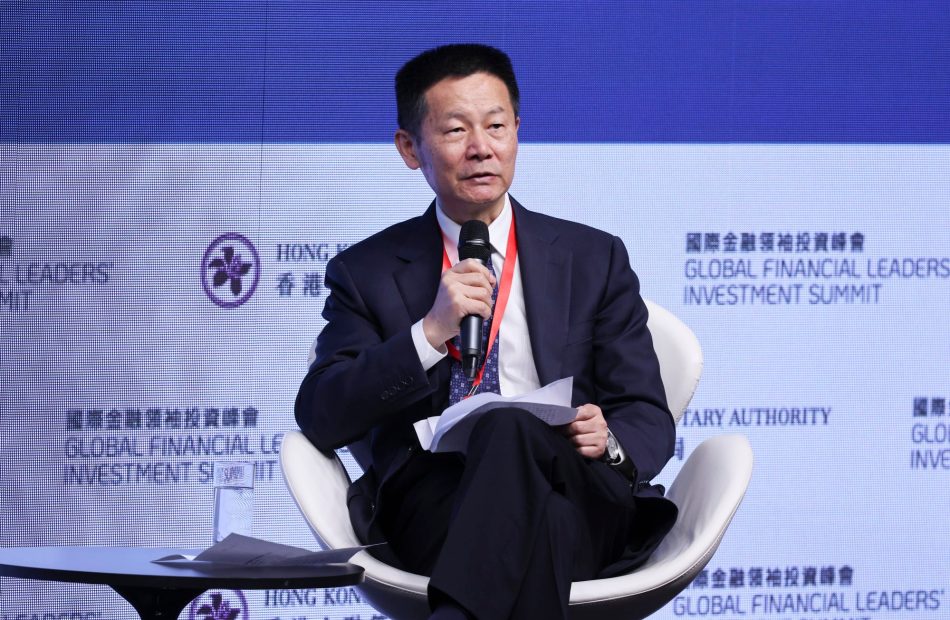Volkswagen's Affordable ID.2 EV Set For 2025 Launch, SUV Variant To Follow: 'Stable And Likable With Our Secret Sauce'
Volkswagen VWAGY is gearing up to introduce its budget-friendly ID.2 electric vehicle by the end of 2025, with an SUV version to follow. This move marks a significant step in Volkswagen’s strategy to expand its electric vehicle lineup.
What Happened: Volkswagen is on schedule to release its budget-friendly ID.2 electric vehicle by late 2025, reported Autocar. This model is expected to be the most economical in the company’s lineup, priced under $27,000 (€25,000).
At the LA Auto Show, Volkswagen’s tech development head, Kai Grünitz, confirmed that the ID.2 will lead a major overhaul of the brand’s “ID” electric car series. Grünitz indicated that significant advancements are anticipated, starting in 2026, with a fresh design approach.
“It’s matching 100% to our brand values: it will be stable and likable with our secret sauce—but in a different way,” Grünitz said, according to the report.
The ID.2 will be the first vehicle to utilize Volkswagen’s new MEB Entry Platform. An SUV version is slated for a reveal at the Munich Motor Show in September 2025, with a GTI model also in development.
Grünitz emphasized that the ID.2 will mark a new beginning for Volkswagen, with customers noticing a substantial transformation. The vehicle promises a range of up to 279 miles (450 km) and combines the spaciousness of a Golf with the affordability of a Polo.
Why It Matters: Volkswagen’s push to launch the ID.2 comes amid a challenging period for the company.
In the third quarter of 2024, the automaker experienced a 10% decline in electric vehicle sales, primarily in the U.S. and Europe, although China showed a 5% growth. This underscores the importance of the ID.2 as a strategic move to capture a larger market share.
Meanwhile, Volkswagen has been making strategic investments, such as increasing its stake in Rivian Automotive Inc. RIVN. Analysts see this as a vital step for both companies, aiding in production and cost efficiency. The collaboration is expected to provide capital for future growth, enhancing vehicle offerings and software integration.
Check out more of Benzinga’s Future Of Mobility coverage by following this link.
Read Next:
Disclaimer: This content was partially produced with the help of AI tools and was reviewed and published by Benzinga editors.
Photo courtesy: Volkswagen
Market News and Data brought to you by Benzinga APIs
© 2024 Benzinga.com. Benzinga does not provide investment advice. All rights reserved.
Petrobras to Distribute R$ 20 Billion in Dividends
Petroleo Brasileiro SA- Petrobras (PBR) has released an update.
Petrobras has announced an extraordinary dividend payout of R$ 20 billion, approximately R$ 1.55 per share, which will be distributed to shareholders in December 2024. This decision aligns with the company’s Shareholder Remuneration Policy, ensuring financial sustainability while rewarding investors. Shareholders of Petrobras can expect their payments by December 23, 2024, for B3-listed shares, while ADR holders will receive theirs starting January 3, 2025.
For further insights into PBR stock, check out TipRanks’ Stock Analysis page.
NOVA NET LEASE REIT ANNOUNCES FINANCIAL RESULTS FOR THE PERIOD ENDED SEPTEMBER 30 2024
/NOT FOR DISTRIBUTION TO U.S. NEWSWIRE SERVICES OR DISSEMINATION IN THE UNITED STATES/
TORONTO, Nov. 22, 2024 /CNW/ – Nova Net Lease REIT (“NOVA” or the “REIT”) NNL NNLRF, a real estate investment trust with investments in cannabis-related properties in the U.S., today announced its financial results for the three months ended September 30, 2024. The REITs financial results are available on SEDAR+ (www.sedarplus.ca). Results are presented in U.S. dollars.
Results for the third quarter of 2024:
|
Three Months ended September 30, 2024 |
||
|
Total Revenues |
$ |
392,664 |
|
General and Administrative Expenses |
479,976 |
|
|
Finance Costs |
50,593 |
|
|
Interest Income |
(22,888) |
|
|
Share of earnings from Joint Venture |
(12,341) |
|
|
Fair Value Change – Derivative |
70,754 |
|
|
Fair Value Change – Class B Units |
240,000 |
|
|
Fair Value Change – Investment Properties |
80,192 |
|
|
Total Expenses and Other Income |
886,286 |
|
|
Net Loss and Comprehensive Loss |
$ |
(493,622) |
For further information, please see the Condensed Consolidated Interim Financial Statements for the three and nine months ended September 30, 2024, and the related Management’s Discussion and Analysis for the same period, which are available on SEDAR+ at www.sedarplus.ca.
Forward-Looking Statements
This press release contains statements that include forward-looking information within the meaning of Canadian securities laws. These forward-looking statements reflect the current expectations of the REIT regarding future events, including statements concerning the ability of the REIT to achieve its stated investment objectives, any future acquisitions and the future success of the platform. In some cases, forward-looking statements can be identified by terms such as “may“, “will”, “could”, “occur”, “expect”, “anticipate“, “believe”, “intend“, “estimate“, “target”, “project“, “predict”, “forecast”, “continue“, or the negative thereof or other similar expressions concerning matters that are not historical facts.
These statements are not guarantees of future performance and undue reliance should not be placed on them. Such forward-looking statements necessarily involve known and unknown risks and uncertainties, which may cause actual performance and financial results in future periods to differ materially from any result expressed or implied by such forward-looking statements, including the risk factors set forth in the REIT’s final Prospectus dated December 22, 2021, under the heading “Risk Factors“.
Although forward-looking statements contained in this press release are based upon what management of NOVA believes are reasonable assumptions, there can be no assurance that forward-looking statements will prove to be accurate, as actual results and future events could differ materially from those anticipated in such statements. NOVA undertakes no obligation to update forward-looking statements if circumstances or management’s estimates or opinions should change except as required by applicable securities laws. The reader is cautioned not to place undue reliance on forward-looking statements.
SOURCE Nova Net Lease REIT

![]() View original content to download multimedia: http://www.newswire.ca/en/releases/archive/November2024/22/c1826.html
View original content to download multimedia: http://www.newswire.ca/en/releases/archive/November2024/22/c1826.html
Market News and Data brought to you by Benzinga APIs
© 2024 Benzinga.com. Benzinga does not provide investment advice. All rights reserved.
Crowdstrike price target raised to $395 from $345 at KeyBanc
KeyBanc raised the firm’s price target on Crowdstrike (CRWD) to $395 from $345 and keeps an Overweight rating on the shares. The firm sees a high bar for October security reporters given strong stock performance despite muted Q3 security earnings results thus far, saying its checks have been solid, the analyst tells investors in a research note. Results for Crowdstrike were strong, with several partners noting a bounce back this quarter and no mentions of customer migrations away from them, the firm says.
Published first on TheFly – the ultimate source for real-time, market-moving breaking financial news. Try Now>>
See today’s best-performing stocks on TipRanks >>
Read More on CRWD:
Michael Saylor Reveals MicroStrategy Is 'Making $500M A Day' With Bitcoin: 'May Very Well Be The Most Profitable Company In The US Growing The Fastest Right Now'
MicroStrategy Inc. MSTR co-founder Michael Saylor has revealed that the company is minting $500 million a day as Bitcoin BTC/USD inches closer to $100,000 for the first time in its history.
What Happened: Saylor, who has been all-in on Bitcoin for years now, has revealed an insane statistic – MicroStrategy’s holdings of the top cryptocurrency have appreciated by as much as $5.4 billion over the last two weeks.
In an interview with CNBC, Saylor broke down MicroStrategy’s gains, saying, “We’re making $500 million a day. I’m staring at my screen and we’re selling dollar bills for $3, sometimes a million times a minute.”
To put things into perspective, MicroStrategy’s stock delivered a whopping 97% gain in the last month, while Bitcoin has gained nearly 47%.
Year-to-date, MicroStrategy’s stock has gained over 515% while Bitcoin prices have increased by 122%.
Nvidia, the AI bellwether and the world’s most valuable company by market capitalization, has seen its stock rise by nearly 195% during this period.
“We may very well be the most profitable company in the U.S. growing the fastest right now. There’s not many companies making $500 million a day,” Saylor said.
Why It Matters: The surge in MicroStrategy’s stock is not just a reflection of Bitcoin’s rising value but also highlights the company’s strategic bet on the cryptocurrency.
Research from BitMEX has shown that MicroStrategy is trading at a 256% premium to the net asset value of its Bitcoin holdings, suggesting a significant valuation disparity driven by its aggressive acquisition strategy.
This premium may be influenced by financial regulations that restrict Bitcoin ETF purchases, pushing investors towards MicroStrategy for exposure.
Furthermore, Saylor’s bold prediction that Bitcoin could reach $13 million by 2045 has sparked discussions about the potential economic implications, including massive hyperinflation.
This prediction, if realized, would elevate Bitcoin’s market cap to $250 trillion, dwarfing the current world GDP and global stock markets.
Amidst these developments, Warren Buffett’s decision to hold $325 billion in cash at Berkshire Hathaway has drawn criticism from Saylor, who argues that not investing in Bitcoin is a missed opportunity.
Price Action: At the time of writing, Bitcoin was trading at $98,556, down 0.04% in the last 24 hours, according to Benzinga Pro data.
Read Next:
Photo courtesy: Wikimedia
Market News and Data brought to you by Benzinga APIs
© 2024 Benzinga.com. Benzinga does not provide investment advice. All rights reserved.
Eyenovia taking additional actions to reduce personnel-related costs by over 70%
Eyenovia (EYEN) announced that Avenue Capital Management has agreed to support a potential restructuring of Eyenovia’s Loan and Security Agreement and has agreed to defer principal and interest payments on its outstanding debt until the end of February 2025. Eyenovia also announced that it is taking additional actions that are intended to reduce the Company’s ongoing personnel-related costs by over 70%. “We are grateful to Avenue Capital for the support they have demonstrated during this challenging time,” stated Michael Rowe, CEO of Eyenovia. “We took immediate steps to restructure our costs and extend our runway to allow us the flexibility to explore a broad range of strategic alternatives.” As previously disclosed, Eyenovia is considering a variety of steps to maximize value to all stakeholders, to reduce expenses and to evaluate its strategic options, which may include a business combination, reverse merger, asset sales or a combination of those alternatives. Further information will be made available once the evaluation of strategic options has been completed.
Published first on TheFly – the ultimate source for real-time, market-moving breaking financial news. Try Now>>
See the top stocks recommended by analysts >>
Read More on EYEN:
3 Monster Stocks in the Making
Godzilla and King Kong surely weren’t born big. They began small and grew over time to their gargantuan sizes even if the movies don’t tell their childhood stories.
Likewise, huge companies of today were once much smaller (unless perhaps they were spin-offs). Investors who spotted them early had opportunities to make fortunes.
Are You Missing The Morning Scoop? Wake up with Breakfast news in your inbox every market day. Sign Up For Free »
Can you still find such monsters in the making? Three Motley Fool contributors think so. Here’s why they think biotech stocks CRISPR Therapeutics (NASDAQ: CRSP), Summit Therapeutics (NASDAQ: SMMT), and Viking Therapeutics (NASDAQ: VKTX) could become much larger.
David Jagielski (CRISPR Therapeutics): If you’re looking for stocks with mammoth upside, you might be tempted to look for risky stocks that don’t have any approved drugs or treatments yet. But with CRISPR Therapeutics, you already have a stock that has an approved treatment — it simply isn’t far along in its rollout.
In December 2023, regulators approved Casgevy, which is a gene-editing therapy the company has been developing with Vertex Pharmaceuticals. It was approved as a treatment for sickle cell disease for patients 12 years and older. Then, a month later, it was also approved to treat people with transfusion-dependent beta-thalassemia (for the same age group). Casgevy can be a game changer for patients with these rare blood disorders as it is a one-time functional cure.
CRISPR will share in the profits with Vertex on Casgevy (collecting 40% of them), which could potentially help the company get to profitability. Currently, its operations are well funded with CRISPR reporting more than $1.9 billion in cash and marketable securities as of the end of September. For a business that has burned through $92.7 million in cash over the past nine months, that can provide it with a lot of runway and time to grow its operations and work on other treatments in its pipeline.
At a modest market cap of just $4 billion, there’s a lot of room for CRISPR to get a whole lot more valuable in the future as it scales its operations and Casgevy starts to generate revenue. Buying the healthcare stock now can be a great move for long-term investors.
Keith Speights (Summit Therapeutics): It’s practically unheard of for a company with no product on the market to have a market cap of $14 billion. But Summit Therapeutics is no ordinary company.
Adani CFO says US charges linked to only one business contract
By Aditi Shah, Aditya Kalra
NEW DELHI (Reuters) -A U.S. bribery indictment of Indian billionaire Gautam Adani is linked to one contract of Adani Green Energy that makes up some 10% of its business, and no other firms in the conglomerate are accused of wrongdoing, the group’s CFO said on Saturday.
On Wednesday, Gautam Adani, one of the world’s richest men, and seven others were indicted for fraud by U.S. prosecutors over their alleged roles in a $265 million scheme to bribe Indian officials to secure power-supply deals.
Adani has denied all allegations calling them “baseless”.
Group CFO Jugeshinder Singh sought to defend the allegations on Saturday saying none of Adani’s 11 public companies “are subject to indictment” or “are accused of any wrongdoing in the said legal filing”.
The allegations in the U.S. indictment relates to “one contract of Adani Green, which is roughly 10% of overall business of Adani Green”, Singh said on X.
The U.S. prosecutor charges are the biggest setback for India’s $143 billion Adani Group, which was last year hit by Hindenburg Research’s allegations of improper use of offshore tax havens, claims the company denied.
The U.S. indictment has already had a significant impact on the business.
The group entity’s shares have plummeted, some global banks are considering temporarily halting fresh credit to Adani and Kenya has cancelled two deals with Adani worth over $2.5 billion.
Adani, which has several other global projects, is also charged with misleading U.S. investors about Adani Green’s compliance with antibribery principles and laws.
Singh said on Saturday, they became aware of the “specificity” of the U.S. charges only two days ago.
“We were aware that something is afoot,” he said, adding the company disclosed as much to investors in its $750 million 2024 bond offering, about $175 million of which was raised from financial institutions in the United States.
The U.S indictment, however, says the bond offering “contained false and misleading assurance about, among other things, the Indian Energy Company’s (Adani Green’s) ‘corporate governance’ and touted ‘maintaining transparency and compliance in every aspect’.”
The charges also put the spotlight on Sagar Adani, a director at Adani Green and millennial scion of the company who kept track of hundreds of millions of dollars of alleged bribes to Indian officials on his mobile phone.
Singh said the group would make a more detailed comment once it has legal approval as the matter is before the courts.
(Reporting by Aditi Shah and Aditya Kalra; Editing by William Mallard, Christopher Cushing and Sam Holmes)
Billionaire Bill Ackman Recently Bought One of My Favorite Stocks. Here's Why I Think It Was a Brilliant Move.
Bill Ackman is a billionaire nine times over, according to Forbes. He made his vast wealth by running Pershing Square Capital, the hedge fund he founded 20 years ago. He increased his fame (and made a lot of money) during the financial crisis by betting against bond insurer MBIA and rescuing mall operator General Growth Properties.
Ackman has a concentrated investment style. His fund typically has 10 holdings or less, and when he finds something he likes, he bets big on it. One stock he recently loaded up on is Brookfield (NYSE: BN) — which also happens to be one of my favorite stocks and top holdings. Here’s why I think buying Brookfield was a wise move that will likely make Ackman even more money.
Are You Missing The Morning Scoop? Wake up with Breakfast news in your inbox every market day. Sign Up For Free »
Ackman has been buying shares of Brookfield hand over fist. His stake in it has multiplied five-fold since June to 22 million shares. That position is currently worth over $1.7 billion, which is about 13% of his hedge fund’s assets, making it the top holding.
Brookfield isn’t a household name among most investors, and the Canadian investment manager’s operation might seem a bit complex at first glance. It has three core businesses:
-
Asset management: The company owns a 73% interest in a leading alternative investment manager, and its Brookfield Asset Management business has over $1 trillion in assets under management.
-
Wealth solutions: The company provides a variety of insurance products and services, including annuities, personal and commercial property and casualty insurance, and life insurance.
-
Operating businesses: Brookfield has operating businesses in renewable power (Brookfield Renewable), infrastructure (Brookfield Infrastructure), business and industrial services (Brookfield Business), and real estate.
In many ways, Brookfield is like a mix between Berkshire Hathaway and Blackstone. Similar to Berkshire, it has insurance operations and invests capital on behalf of investors into operating businesses (and its funds). Meanwhile, it also owns a large stake in a leading alternative asset manager that rivals Blackstone in size and expertise.
Brookfield also has a strong leader, CEO Bruce Flatt, whom many have called the Warren Buffett of Canada. Like Buffett, Flatt is a value investor with a phenomenal track record of allocating capital to grow shareholder value. He’s been with the company since 1990 and has been CEO since 2002. Over the last 20 years, Brookfield has delivered annualized total returns of 16%. That handily beat the S&P 500 and Berkshire Hathaway, both of which delivered annualized returns of about 11% during that period.
In Hong Kong vs Trump 2.0, global CEOs see new hopes, old threats
China envisions Hong Kong’s capital markets as a beacon of prosperity, having lifted the city out of social chaos in June 2020. This week, Beijing backed that goal with vocal support at an investment summit attended by CEOs of global banks and money managers.
The question has never been more pertinent as the US ushers in president-elect Donald Trump in January. His economic policies will roil global markets, based on campaign speeches. Hong Kong, caught in the crosshairs of the US-China spat in his first term, should be preparing for a repeat, according to popular predictions.
Do you have questions about the biggest topics and trends from around the world? Get the answers with SCMP Knowledge, our new platform of curated content with explainers, FAQs, analyses and infographics brought to you by our award-winning team.
At play is HK$32 trillion (US$4.1 trillion) of assets managed by local and global funds, as well as private banks in the city, according to government data. The stake is surely far higher, with trillions of dollars sloshing in Asia-Pacific, eyeing the potential rewards in the capital markets on both sides of the city’s border.
The world’s biggest lenders including JPMorgan Chase, Bank of America, Citigroup, HSBC and Mitsubishi UFJ Financial Group, are counting on China for growth, with thousands of employees based in the region. Bridgewater Associates and BlackRock are also banking on a turnaround in one of the cheapest stock markets worldwide.
“People are leery of investing a lot of money in a country that is part of geopolitical tensions,” said co-chairman Howard Marks, whose Los Angeles-based firm manages US$205 billion of assets. “China is still trailing other markets. It’s still an unpopular market. [But] the best values are usually found in unpopular markets.”
Beijing has urged Hong Kong to be “self-assertive” in deepening financial reforms, dovetailing with national developments, Vice-Premier He Lifeng said. The central government will also help more mainland companies list in Hong Kong, improve mutual market access and strengthen its position as a global offshore yuan hub, he added.
The authorities will soon allow foreign investors to trade commodities and other financial options through the “Connect” schemes with Hong Kong, Wu Qing, chairman of the China Securities Regulatory Commission (CSRC), stated. It will help more mainland firms list in Hong Kong and strengthen the city’s position as a global offshore yuan hub, he added.



